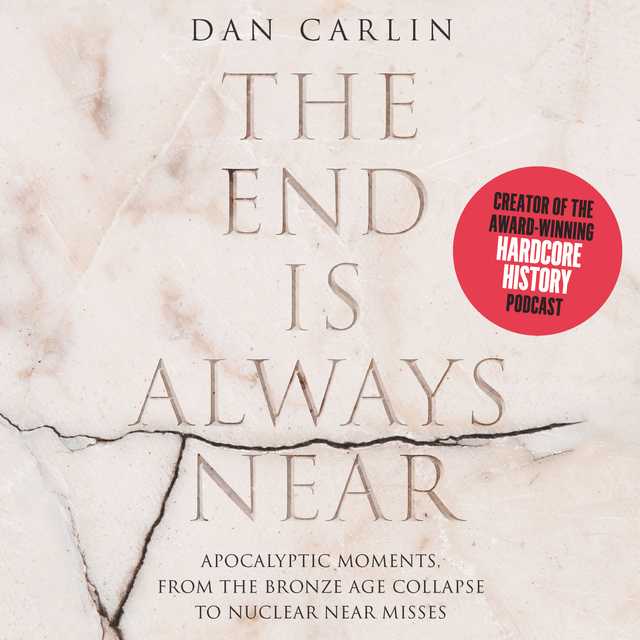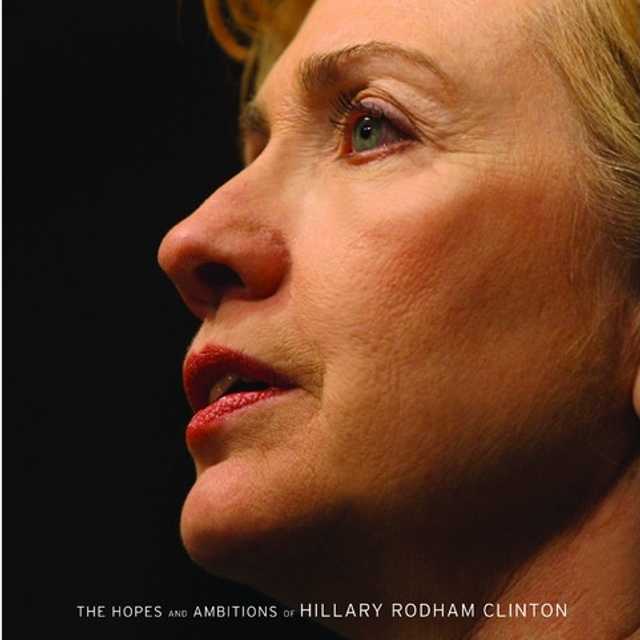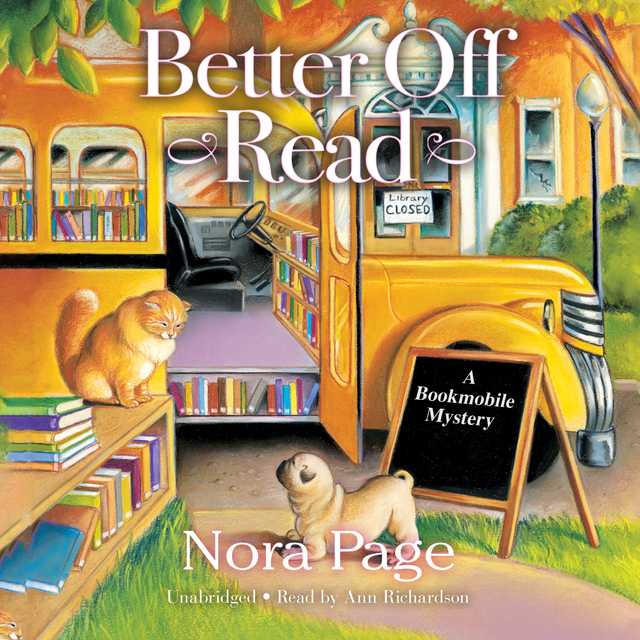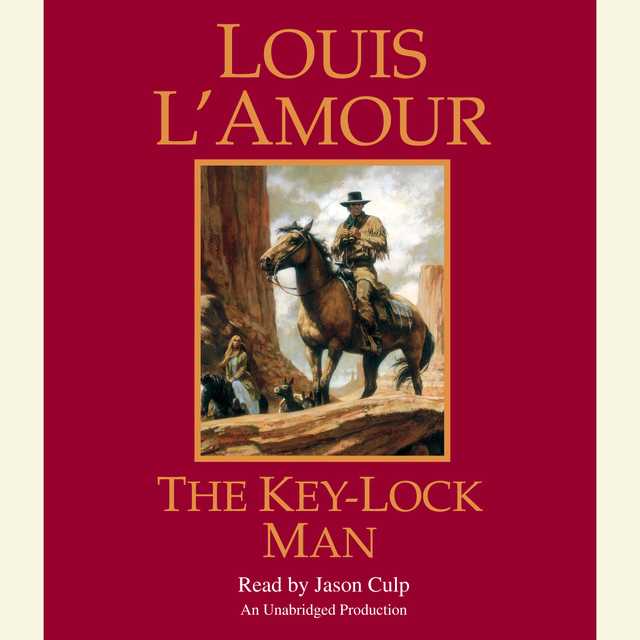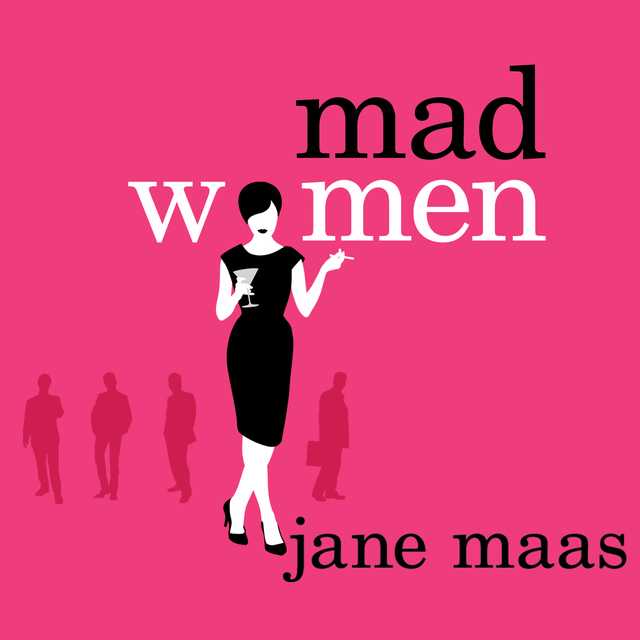The End is Always Near Audiobook Summary
The creator of the wildly popular award-winning podcast Hardcore History looks at some of the apocalyptic moments from the past as a way to frame the challenges of the future.
Do tough times create tougher people? Can humanity handle the power of its weapons without destroying itself? Will human technology or capabilities ever peak or regress? No one knows the answers to such questions, but no one asks them in a more interesting way than Dan Carlin.
In The End is Always Near, Dan Carlin looks at questions and historical events that force us to consider what sounds like fantasy; that we might suffer the same fate that all previous eras did. Will our world ever become a ruin for future archaeologists to dig up and explore? The questions themselves are both philosophical and like something out of The Twilight Zone.
Combining his trademark mix of storytelling, history and weirdness Dan Carlin connects the past and future in fascinating and colorful ways. At the same time the questions he asks us to consider involve the most important issue imaginable: human survival. From the collapse of the Bronze Age to the challenges of the nuclear era the issue has hung over humanity like a persistent Sword of Damocles.
Inspired by his podcast, The End is Always Near challenges the way we look at the past and ourselves. In this absorbing compendium, Carlin embarks on a whole new set of stories and major cliffhangers that will keep readers enthralled. Idiosyncratic and erudite, offbeat yet profound, The End is Always Near examines issues that are rarely presented, and makes the past immediately relevant to our very turbulent present.
Supplemental enhancement PDF accompanies the audiobook.
Other Top Audiobooks
The End is Always Near Audiobook Narrator
Dan Carlin is the narrator of The End is Always Near audiobook that was written by Dan Carlin
Pioneering podcaster Dan Carlin is the king of long-form audio content. With his Hardcore History shows sometimes topping out at over six hours long, Carlin humanizes the past and forces the audience to “walk a mile in that other guy’s historical moccasins.” Hardcore History has been downloaded over 100 million times.
About the Author(s) of The End is Always Near
Dan Carlin is the author of The End is Always Near
More From the Same
- Publisher : HarperAudio
- Abraham
- American Gods [TV Tie-In]
- Dead Ringer
- House of Sand and Fog
- Prey
The End is Always Near Full Details
| Narrator | Dan Carlin |
| Length | 7 hours 55 minutes |
| Author | Dan Carlin |
| Category | |
| Publisher | HarperAudio |
| Release date | October 29, 2019 |
| ISBN | 9780062868077 |
Subjects
The publisher of the The End is Always Near is HarperAudio. includes the following subjects: The BISAC Subject Code is General, History & Surveys, Philosophy
Additional info
The publisher of the The End is Always Near is HarperAudio. The imprint is HarperAudio. It is supplied by HarperAudio. The ISBN-13 is 9780062868077.
Global Availability
This book is only available in the United States.
Goodreads Reviews
Thomas
November 30, 2019
Unlike many of the other reviewers here, I have actually listened to the podcast. I’ve been a fan of Hardcore History and Dan Carlin’s unique and chatty approach to the subject for years. I’ve noticed that every chapter in this book is essentially a reworked past episode of the podcast. I’m not complaining. Stringing them together into a book with a common theme is brilliant. A number of the other episodes that weren’t covered in this book, the epically long ones, would also make great books.It was fun to go back and revisit these topics. Hardcore History is the most entertaining and thought-provoking podcast on the Internet, in my opinion. My only complaint here is that by reworking the episodes into print form and then reading them back in the audiobook, (I’m an Audible fan) these accounts lose something when compared to the podcast. I’m glad to have it all packaged together like this in one place, but I’m also glad I listened to the podcast. At least with the audiobook, we get Dan Carlin’s voice and inflection. I can only imagine that it might lose even more in the text format. To those of you who read the text version and didn’t much care for it, try listening to an episode of the podcast and see if you feel the same way. If you’re the sort to turn up your nose at the audio format altogether, there’s nothing I can do for you.All in all, this is an interesting take on the cycles of history and how we never seem to get away from doomsday just around the corner. This book takes you into the extremes of human experience in a way that few other history books ever do. It also explores the choices we’ve made as a species and how they looked from the point of view of the decision-makers. Unlike most professional historians (The author is not one), Dan Carlin freely speculates about the thought processes of these people without being encumbered by the need for academic rigor. If you bear that in mind, I don’t think it’s a problem. This is as much about thinking about history as it is about chronicling it.Whether you’re a fan of the podcast or not, this book is well worth your time.
Riku
March 25, 2020
A hundred years ago, humankind went through one of the worst phases in their history. A world war, a global pandemic and then another world war. We survived. After that, a lot of measures were put into place to ensure we don’t have to go through such devastation again. World War 3 is something we dread whenever the slightest international diplomacy failure happens. And it has worked, to an extent. We haven’t had to face a World War again. However, we haven’t been as vigilant about Global Pandemics. And today, we seem to be in the grip of something as dangerous as any – COVID -19. The Spanish Flu though overshadowed by the World Wars, was perhaps as big a disaster as either of the wars. We need to mobilize our nations today, as we would for a major war. Bill Gates had made a global call for this back in 2015.We did not heed it. Today, we go to work and talk about deadlines and other stuff as if a global war is not waging on humanity. We need to take severe war-like action today. Before it is too late.Perhaps it would be a good time to look back on the 100-year-old pandemic that almost sunk us. The Four Riders of the Apocalypse rode together a hundred years ago, and it would serve us well to remember that the horsemen always meet each other and reap together, even if one might arrive before others occasionally.In 1918, during a century just like ours, in which the most modern of societies thought such epidemics were a thing of the past, people got a reminder that even seemingly routine illnesses can be potentially civilization threatening under the right conditions. A malady that would be dubbed the Spanish Flu struck while the devastating First World War was raging, and soon its death toll greatly surpassed that of the war’s.Perhaps one of the most astonishing things about this flu was that at the time it hit, humanity had made great strides in medicine. But when American service personnel started showing symptoms, the experts were stumped. The author John Barry describes in The Great Influenza how sailors mysteriously began bleeding from their noses and ears, while others coughed blood. “Some coughed so hard the autopsies would later show they had torn apart abdominal muscles and rib cartilage,” Barry writes. Many were delirious or complained of severe headaches “as if someone were hammering a wedge into their skulls just behind the eyes” or “body aches so intense they felt like bones breaking.” Some of the men’s skin turned strange colors, from “just a tinge of blue around their lips or fingertips” to skin “so dark one could not tell easily if they were Caucasian or Negro.”A couple of months before the appearance of these extraordinary symptoms, autopsies of crewmen from a British ship who had died after experiencing similar trials showed “their lungs had resembled those of men who had died from poison gas or pneumonic plague.”More alarming was the speed and scope of the spreading, Barry writes, despite efforts to isolate and contain those who hadn’t even shown symptoms but had merely been exposed: “Four days after that Boston detachment arrived, nineteen sailors in Philadelphia were hospitalized. . . . Despite their immediate isolation and that of everyone with whom they had had contact, eighty-seven sailors were hospitalized the next day . . . two days later, six hundred more were hospitalized with this strange disease. The hospital ran out of empty beds, and hospital staff began falling ill.” As the sick overwhelmed the facility, officials began sending new patients to civilian hospitals, while military personnel continued moving among bases around the country, exposing ever more people.What began in Philadelphia—at least in its most dangerous form—quickly advanced. In his new book, The End is Always Near, Dan Carlin writes, there was still an international war on, and modern transportation had made great strides, so the virus could get from place to place at a far greater pace than any previous pandemic could. The collision of this outbreak with this first period of true globalization was devastating. At its height, whole cities in the United States were virtually shut down, as areas, where human beings congregated, were closed to prevent people from transmitting the illness. People stayed home from school and work rather than risk exposure, and the gears of society in some places seemed imperiled by the justifiable fear of getting sick. By the time it receded in 1920, modern epidemiologists estimate that the flu had killed somewhere between fifty and one hundred million people; “roughly half of those who died were young men and women in the prime of their life, in their twenties and thirties,” Barry writes. “If the upper estimate of the death toll is true, as many as 8 to 10 percent of young adults then living may have been killed by the virus.”The disease wasn’t just remarkable for the number of its victims, but also for the compressed nature of its devastating labors. Although it took two years to come and go, “perhaps two-thirds of the deaths occurred in a period of twenty-four weeks, and more than half of those deaths occurred in even less time, from mid-September to early December 1918.” That amount of damage in that short a period of time is disorienting and potentially destabilizing for a society.All this happened in an age when we understood a lot about biomedicine. We understood that germs spread disease; we understood how you prevented contact to limit exposure. Indeed, doctors quickly figured out that what was killing sailors in Philadelphia was a strain of influenza, but it was unlike any they had seen before, and nothing they did could contain it. As much as a fifth of the entire population of the planet contracted it, and as much as 5 percent died from it. In sheer numbers, it was the deadliest pandemic to hit humankind, but as a percentage of the human population alive at the time, it wasn’t nearly as bad as the Black Death that hit western Europe in the mid-fourteenth century. So, humankind didn’t exactly dodge a bullet—the damage was severe and widespread—but it could have been much, much worse.It still can be, Dan Carlin assures us, in a book that talks about enough civilizational collapses to give one ennui. And as an aside, it should be mentioned that this book would add almost nothing of note to a regular of the podcasts - Carlin just elaborates on themes he explores in great detail in the podcasts as well. The same sense of hubris affects us today as affected the generation that was blindsided by the Spanish Influenza. It’s hard to imagine a human society acting rationally or humanely if mortality levels began reaching catastrophic levels, Dan Carlin says. In the past, societies have been reshaped and at times have nearly crumbled under the weight of a pandemic. It’s possible that, facing mortality rates of 50, 60, or 70 percent—as people who lived through the Black Death did—we might do as they did: turn to religion, change the social structure, blame unpopular minorities and groups, or abandon previous belief systems. We can learn from how people in other eras responded to a catastrophic situation, and we can ask ourselves: With all our modern technology and science and medical knowledge, how do we respond?What’s the likelihood that humanity has already experienced the worst plague it will ever encounter? In the famous science fiction classic The War of the Worlds, author H. G. Wells has the alien would-be conquerors defeated ultimately by Earth’s pathogens. Let’s hope those same planetary defense mechanisms don’t get us first. Those who regularly work with infectious diseases and see the Black Death–like damage that something like Ebola or Marburg virus can have on a small scale in isolated communities are all too aware of how a hemorrhagic fever virus in one global region, or an avian flu mutation somewhere else, could remind us that, just like the Titanic, our civilization is not unsinkable.
AnnaG
October 19, 2019
I have never listened to the podcast that this book is based on, but found it incredibly thought-provoking. At it's heart it's a philosophical take on history looking at how famine, plague, war and other calamities come about, what there effects were and then asking the question of could they happen again? Is our civilisation genuinely different from the Assyrians or Romans who didn't think that their empires could fall either? In a weird way, I think this book is akin to Sapiens: A Brief History of Humankind in its explicit approach of "historical-themes-as-a-philosophical-way-of-examining-society-today". Whilst Harari writes with a "certainty", creating one gigantic narrative sweep of history and a prediction for where we are headed, this book is more about raising questions for the reader to think through and finding nuance. It has a similarly grand ambition to Sapiens (in this case to look at whether the apocalypse is coming), but rather than 1 narrative it does so through 6 or so discrete prisms (eg history of disease, history of war, history of childhood) that zoom in on a relevant example from history - Bronze Age collapse, Cuban Missile Crisis, Black Death plagues etc... I've come away from it with some new insights and a lot to process.
Jim
February 05, 2020
This is a book about systems. Carlin tells stories from across history about civilizations, and how a set of choices can affect a civilization in unintended ways.These stories aren’t all exactly connected to each other, except that they are all under the theme of civilizations as a system. This is kind of like a Malcolm Gladwell book, except Gladwell tells stories to try and prove a point. Carlin isn’t interested in proving a point, or explaining a definitive answer to a question. Carlin just likes the questions.And he’s a great presenter of history - I learned a lot and it made me think about things in ways I hadn’t before, so I’m giving this five stars.The best part of the book for me was the next to last (and longest) chapter on nuclear war, specifically the idea of preventative nuclear war. I didn’t realize there was a push between the end of WW2 and when other countries got the bomb for the US to just go ahead and attack Russia while we had the upper hand. Some of the people pushing for this were hawks, but many were avowed pacifists! The idea being that preventative annihilation of bad actors would have saved the largest number of lives.Lots of interesting questions with no clear answers. The open-ended nature is what makes it interesting.
Ryan
November 12, 2019
The principal question for the modern age is this: Has humanity made moral progress, or are we destined to repeat the same mistakes and suffer the same misfortunes? Dan Carlin, founder of the popular podcast Hardcore History, explores this question as he recounts the apocalyptic moments of our past while asking if the modern world is destined to face similar catastrophes, and if so, whether or not we have the resolve to handle them.Carlin covers the Bronze Age collapse, the fall of the Assyrian and Roman empires, and the devastating physical and psychological effects of famine, plague, total war, and potential nuclear annihilation. This is not exactly light or uplifting reading for the holiday season, but that’s the point. Carlin is suggesting that perhaps the state of perpetual peace and stability we are seemingly living in is making us soft and vulnerable to an unexpected calamity that we are no longer tough or resilient enough to endure. We may think that our comfortable lives will go on uninterrupted indefinitely, but then again, so did the Romans, along with the Assyrians, Babylonians, and ancient Egyptians and Greeks. As Carlin asks the reader:“Can you imagine the city you currently live in as a desolate ruin? Will it one day be like most cities that have ever existed, or not? Either outcome seems fascinating.”As Carlin narrates the calamities of the past, the reader is confronted with the question of whether or not our civilization is really immune from any of these apocalyptic scenarios. We may live with advanced technology, but our proclivity for tribalism, superstition, and war is always bubbling under the surface. Might we simply be waiting for the next incurable pandemic or total war or catastrophic nuclear or ecological disaster? As Carlin wrote:“There have always been large wars between the great powers. Any next such war would involve nuclear-armed states. World War III sounds like a bad movie concept, but is it any more unlikely than eternal peace between the great states?”The idea that humanity has already faced its greatest challenges on all fronts (disease, war, natural disasters, famine, and political upheaval) seems to be very unlikely. And it is precisely this complacent frame of mind that makes any civilization most susceptible to catastrophe. As Carlin wrote, when discussing the possibility of nuclear annihilation during the Cuban Missile Crisis:“Samuel Johnson is supposed to have said, ‘When a man knows he is to be hanged in a fortnight, it concentrates his mind wonderfully.’ For that two-week period [the Cuban Missile Crisis], when all seemed near lost, humankind treated the threat with the level of gravity it deserved. In a perfect world, we would be able to do this continuously, but history has shown that the lesser aspects and banalities of life have a way of intruding.”In other words, it could be the case that our underestimation of existential risks ironically makes them much more likely to occur. On the other hand, and despite all of this, there is some cause for optimism. We certainly know more today about the containment of infectious disease, for example, and we also know that no two democracies have ever gone to war with each other. As long as our medical and political science stay one step ahead—and constant vigilance is maintained—we may in fact be able to avert the next deadly pandemic or total war. More importantly, there is an argument to be made that we have also made some moral progress, having grown increasingly averse to war and violence. As Carlin pointed out, after the end of the Second World War, the United States was the only country in the world to possess nuclear weapons. Yet despite the urgings of several American military leaders to attack the Soviet Union, the US did not initiate a nuclear attack on its primary global competitor when it had the opportunity to do so.As Carlin wrote:“What would Julius Caesar, or Alexander the Great—or Hitler, for that matter—have done with a monopoly on nuclear weapons? Not use them? If you gave the great Carthaginian general Hannibal nuclear weapons in his life-or-death struggle with the Roman Republic, handed him the button, and said, ‘If you push this, all of Rome will be devastated,’ does he push it, or does he say, ‘Maybe I should think about this?’”Whether or not you think the US was justified in dropping atomic bombs on Japan to end the war (perhaps saving more lives in the process), its decision to not use them on the Soviet Union when they had a nuclear monopoly can be considered progress of a kind. To Carlin’s credit, he prefers to ask the questions rather than answer them. By his own admission, he is a fan and popularizer of history, not a historian. His strengths lie in his ability as a master storyteller and clever inquirer, which are on full display in this book. But it is the reader who is ultimately left to decide whether or not the future will resemble the past. Carlin leaves the reader to contemplate several questions, the most critical of which may be whether we should de-modernize the world to prevent environmental disaster or whether the very societies that create the greatest ecological and military risk are the most likely to, for example, cure the next pandemic or divert an incoming asteroid. In the end, the question is whether or not we will use our technology for good or evil, or whether we are up against so many threats that, sooner or later, one or the other will lead to civilizational collapse. Since no one can foresee the future, these are not easy questions to answer. In closing, I’ll point out that there is a more cynical interpretation of the book that would consider it to be a series of loosely connected essays regurgitated from the podcast. Since Carlin is not advancing any original thesis, it’s possible that a fan of the podcast would already be familiar with much of the content. Not being very familiar with the podcast myself, I can’t really say. But without that knowledge, I can easily recommend the book on its own merits as a fascinating narration of our more gruesome past and as an important philosophical exploration of humanity’s future.
Andrej
November 24, 2019
I understand that some of the book's content has appeared in Dan's Hardcore History podcasts, but since I've only listened to a sparse few a lot of the book was relatively new material to me. I thought the premise of the book was excellent: Things look quite good right now and it's hard to imagine civilization regressing substantially, but history is filled with examples of exactly that over and over again. Just how optimistic should we be today that we can avert the same fate?I expect that Dan could write an excellent book laser focused on exploring this, but while the book does do a bit of it now and then, more often than not it also distracts itself and goes off on tangents of what feels like filler / irrelevant content. For example, we're discussing the Assyrian empire, the Roman empire and their fall, but then we also randomly learn a little too much of the treatment of children in history, or the details of various bombings during the second world war. What is the point of these?I would have preferred if the book stuck more closely to its core theme, with multiple examples of powerful empires rising and falling unexpectedly, with an analysis of what made that happen, and whether that analysis applies to today. This is something we half get, which is still fun. Enjoyed overall!
Bryan
April 08, 2021
If you’re a long time listener of Dan Carlin’s Hardcore History podcast, as you read The End Is Always Near, you’re likely to hear his voice in your head hitting every emphasis, cadence, and downbeat. Which is to say, the book is pretty much like reading his podcast. Which is good--quite good. But it also means you’ve probably already heard most of everything that you’ll read. Not that his podcast is a substitution for this book, or book a substitute for podcast, though they share a family resemblance. This is a book review, not a podcast review, so let’s get on with it already.Boy, oh boy, he nailed the timing of this one. The End Is Always Near was published in October of 2019. Imagine putting out a book about a series of significant historical “end times”--including the plague--a mere couple of months before our current day apocalyptic scenario. At one point, he even asks us to picture what would happen if a deadly epidemic of a highly contagious disease happened in today’s world of interconnectivity and travel--gee, I’ll try!Dan Carlin has a great way of taking big, complicated, multifaceted histories and tying them together with metaphors and socratic questions relevant to a modern reader. He doesn’t just make history accessible, but inhabitable. So, even if history books aren’t usually your thing, you’ll be able to pick this up and step right into the end of the Bronze Age, the aftermath of the fall of Rome, or the highest tensions of the Cold War.I do have a few criticisms. The histories he’s chosen are incredibly Western-centric. I would have liked to see more inclusion of Eastern and Global South histories. They’ve certainly faced their fair share of apocalypses! In the chapters on nuclear war tensions between the US and USSR, half the story was severely lacking. (Hint: the half that wasn’t the US.) If Dan Carlin puts out another book, I’ll definitely check it out, but I’ll hope he’s more extensive in his historical selections.
Charlie
December 14, 2019
The themes of this book will be familiar to listeners of the Hardcore History podcast, as Dan Carlin has touched on them before, particularly in the early episodes (before the podcast became super long). Here, those themes are fleshed out in more detail. The book maintains the same engaging style that made me fall in love with the podcast.
Brendan
January 08, 2020
If you haven't listened to Dan Carlin's "Hardcore History" podcast, do yourself a favor and download it now. I first heard of Dan Carlin thanks to an interview the author Sam Harris gave to The Guardian back in 2015. Harris mentioned Carlin's podcast and before long I'd downloaded all 50+ episodes and was instantly hooked. The only problem is that Carlin, who releases long-form podcasts that often exceed four hours, only produces one to two podcasts a year, so the wait time is real.I particularly recommend Carlin's podcast on the First World War called Blueprint for Armageddon as well as his series on the rise of Genghis Khan's mongols called Wrath of the Khans. The reason I mention the podcast here is that Carlin has essentially gone and written a book, his first, that is more or less a "Greatest Hits" of his podcast series. That doesn't mean the book isn't good, it is, but when you're used to a series that takes on a specific subject in six 4+ hour episodes, a 288-page book that jumps through various historical events isn't going to feel like much more than an overview.So there it is. If you want a great introduction to Dan Carlin, this is it. I predict you'll like it and end up wanting more ... or you could just jump right into the podcast. While Carlin claims endlessly that he's "not a historian", he certainly does make history fun!
Jack Quinn
August 21, 2020
Dan Carlin was as excellent as ever with this book. It was thought-provoking, and interesting throughout. I would highly recommend it to history nerds and people interested in extreme situations that people throughout history have dealt with.
Nelly
August 10, 2021
Interesting book that goes through some of the apocalyptic moments from the past and how it affected humanity to the point we are at now.I found it very engrossing and learned more details of some historical events that I wasn't aware of.
James
January 24, 2020
See my full thoughts here: https://youtu.be/KjhHbqnpGYkI don't review much nonfiction, but I really liked this one. It's an examination of the end of civilizations, how people at the time felt about it, and how it relates to our modern world. By looking at things like the Black Death, the Bronze Age Collapse, and the end of the Assyrian Empire, Dan Carlin tries to give a new perspective on what "the end of the world" really means.And it works for the most part. I enjoyed getting his perspective on things, though there's a lot more that could be said on most of the subjects he touches on. Like most pop history, the lack of depth left me unsatisfied. For that matter the prose wasn't very good either, Carlin is a great speaker but not much of a writer. Most of you probably wouldn't want to read the dry historical accounts I'm used to though.Check it out if you're interested in pop history.
Jane
August 22, 2021
This book is just as good as Carlin's endlessly fascinating podcast, Hardcore History. Somehow, he has absolutely mastered the art of teaching his audience in-depth information with complicated politics and lots of moving pieces, while providing a gripping overall narrative of our ancestors with all the human drama you can stand. He illustrates the events and people with primary sources of deadly situations that leave nothing to the imagination, but are not for mere gross shock value. Covering apocalyptic events from ancient times to the Cold War, the scope of this work is just so impressive and taught me so much (as a layperson relatively new to history) but I'm sure would also command the attention of a more expert reader. If you ever wondered what they don't teach you in history class, this book is for you!
Joshua
October 08, 2020
This book was just like the podcast. Thoughtful, filled with primary source anecdotes and provocative. Dan always seems to be able to remind how scary the fact that we have nukes is, although the picture he paints of the allied firebombings of Hamburg and Tokyo are also horrifying. This book also talks a lot about the pre-Persian ancient world, which is something I don't know much about, and find fascinating. The history of our civilization pales in comparison to what has come before, which I guess ties in to Dan's thesis that the apocolypse has happened before and will happen again. This is a quick read, so if you like the podcast, you should check it out.
Sannah
October 11, 2021
Ik ben absoluut het juiste publiek voor dit boek! 🤓 Nadenken over de geschiedenis. Romeinen, barbaren, de pest, Minoïsche koningen, Nineve tot de kernbommen in dr Koude Oorlog. Hoe de geschiedenis zich herhaalt en zal herhalen tot het dilemma nu: 3e wereldoorlog met kernbommen of eeuwige vrede.. Wel spannend hoor.
Frequently asked questions
Listening to audiobooks not only easy, it is also very convenient. You can listen to audiobooks on almost every device. From your laptop to your smart phone or even a smart speaker like Apple HomePod or even Alexa. Here’s how you can get started listening to audiobooks.
- 1. Download your favorite audiobook app such as Speechify.
- 2. Sign up for an account.
- 3. Browse the library for the best audiobooks and select the first one for free
- 4. Download the audiobook file to your device
- 5. Open the Speechify audiobook app and select the audiobook you want to listen to.
- 6. Adjust the playback speed and other settings to your preference.
- 7. Press play and enjoy!
While you can listen to the bestsellers on almost any device, and preferences may vary, generally smart phones are offer the most convenience factor. You could be working out, grocery shopping, or even watching your dog in the dog park on a Saturday morning.
However, most audiobook apps work across multiple devices so you can pick up that riveting new Stephen King book you started at the dog park, back on your laptop when you get back home.
Speechify is one of the best apps for audiobooks. The pricing structure is the most competitive in the market and the app is easy to use. It features the best sellers and award winning authors. Listen to your favorite books or discover new ones and listen to real voice actors read to you. Getting started is easy, the first book is free.
Research showcasing the brain health benefits of reading on a regular basis is wide-ranging and undeniable. However, research comparing the benefits of reading vs listening is much more sparse. According to professor of psychology and author Dr. Kristen Willeumier, though, there is good reason to believe that the reading experience provided by audiobooks offers many of the same brain benefits as reading a physical book.
Audiobooks are recordings of books that are read aloud by a professional voice actor. The recordings are typically available for purchase and download in digital formats such as MP3, WMA, or AAC. They can also be streamed from online services like Speechify, Audible, AppleBooks, or Spotify.
You simply download the app onto your smart phone, create your account, and in Speechify, you can choose your first book, from our vast library of best-sellers and classics, to read for free.
Audiobooks, like real books can add up over time. Here’s where you can listen to audiobooks for free. Speechify let’s you read your first best seller for free. Apart from that, we have a vast selection of free audiobooks that you can enjoy. Get the same rich experience no matter if the book was free or not.
It depends. Yes, there are free audiobooks and paid audiobooks. Speechify offers a blend of both!
It varies. The easiest way depends on a few things. The app and service you use, which device, and platform. Speechify is the easiest way to listen to audiobooks. Downloading the app is quick. It is not a large app and does not eat up space on your iPhone or Android device.
Listening to audiobooks on your smart phone, with Speechify, is the easiest way to listen to audiobooks.

